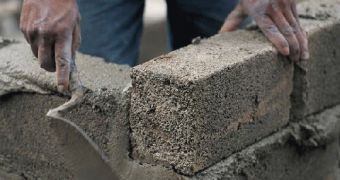A couple of weeks ago, the U.S. House of Representatives passed the TRAIN Act, affecting EPA’s Clean Air Act. A similar story is now causing a stir among environmental groups, this time involving the agency’s rules related to cement plant emissions.
The bill affects three specific EPA rules, including the Cement MACT (maximum achievable control technology) regulations.
The Cement Sector Regulatory Relief Act, H.R. 2681, is to impose a 15-month delay on those regulations, which supporters claim it brings critical health protections.
“There has been widespread concern within the cement sector about the costs and feasibility of implementing these rules as currently written,” according to the House report accompanying the cement bill.
“The Cement Sector Regulatory Relief Act of 2011 is designed to give EPA the time and parameters it needs to develop standards for cement manufacturing plants that will protect public health and the environment without undue threat of cement plant shutdowns and the associated loss of thousands of jobs across the United States,” the report continued.
The ‘cement’ bill is one of the latest Republican efforts to combat a set of regulations which they say will make it harder for companies to maintain and create jobs.
“The GOP march of folly continues, giving a free pass for the cement industry to continue to spew into our air mercury, soot and smog, and the tea party’s brew of toxic pollution,” explained John Walke, clean air director at the Natural Resources Defense Council (NRDC).
“This cement bill would lead to thousands of deaths, illness and missed school and work days every year. It also would prevent the estimated 1,300 jobs the rule would create. This is the opposite of a jobs bill,” he added.
But the EPA vs The Republicans soap-opera does not end here. A similar bill that also is a part of Majority Leader Eric Cantor’s pollution plan will be subject to vote next.
According to NRDC, this would block clean air safeguards on incinerators and industrial boilers, and it also would allow even more of this same toxic pollution into the air.

 14 DAY TRIAL //
14 DAY TRIAL //